Best Cities To Live In Mexico In 2026
Mexico remains one of Latin America’s most compelling destinations, especially for North Americans. More than a million expats call it home, and tens...
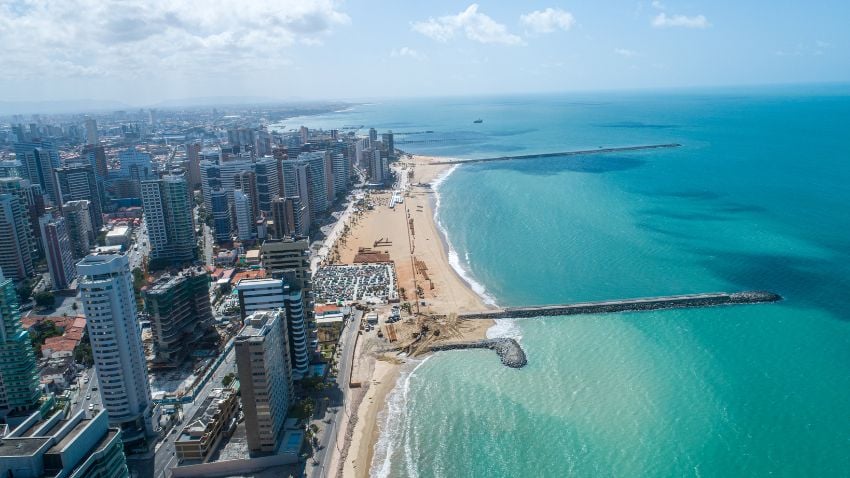
6 min read
Brazil is a country with lots of potential and one of the main members of the BRICS bloc, yet many still shy away from considering it as a feasible expat destination due to prevailing assumptions about its safety.
The media often portrays Brazil as a dangerous place where crime, shootings, and other events happen daily, with the only positive things being Carnival and the soccer scene. This perception leaves many with doubts about its viability as a destination for expats.
However, Brazil is a vast and diverse country. Reducing the entire country to a single narrative of danger oversimplifies the complex reality that, more often than not, has nothing to do with negativity and crime.
This article delves beyond the stereotypes, offering a fresh and detailed perspective on whether Brazil is safe for expats and tourists. It explores why conventional approaches to assessing how safe Brazil is don’t work, how socioeconomic factors play a crucial role, and why adopting common sense is key to securing a positive experience.
Let’s debunk the myths together and reveal the Brazil no one talks about—a country rich in culture, warmth, and opportunities waiting to be discovered.
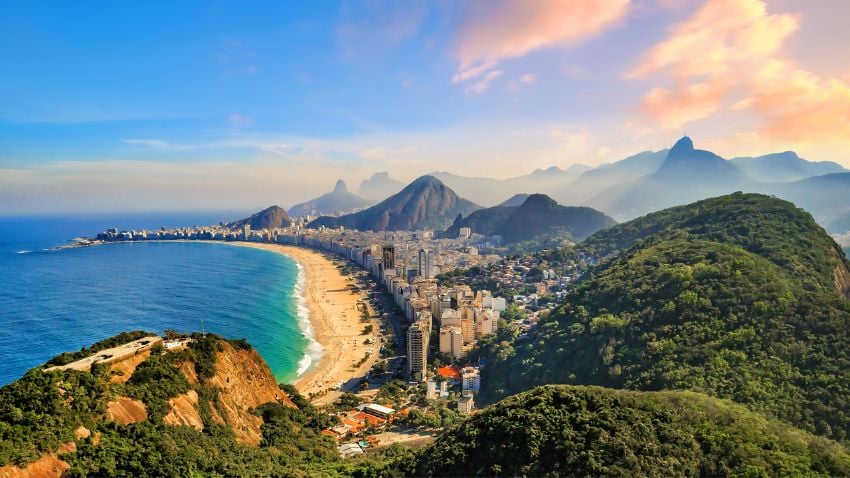
Rio de Janeiro is one of the most tourist cities in Brazil
Many Westerners don't know if Brazil is a safe country due to the way the media often highlights crime and violence. Stories of shootings and gang-related activities dominate headlines, creating a negative perception.
But let’s pause and think logically for a moment. Brazil is a massive country, home to diverse regions, each with unique cultural dynamics and safety profiles. Assuming Brazil is a dangerous country based on isolated incidents or media sensationalism is a faulty premise.
As with many other nations in the region, Brazil has experienced challenges with crime, but painting the entire country with a single brushstroke neglects the complex day-to-day reality. For example, comparing the crime rate of a remote rural town to a major urban center like Rio de Janeiro would yield starkly different results.
Brazil's rich history is reflected in its architecture and cultural heritage. Exploring the historical sites can be a fascinating experience for expats. While enjoying the cultural offerings, it's essential to stay vigilant and follow local advice to ensure a safe exploration of these landmarks.
Safety concerns about Brazil often stem from incomplete information and generalizations. With the right mindset and preparation, navigating the country becomes manageable, contradicting many negative narratives about travelling in Brazil—is it safe or not?
The truth is that crime happens in every country. It’s essential to have a nuanced understanding of crime statistics and their underlying causes. By focusing solely on the negatives, we risk overlooking the vast majority of places where everyday life carries on safely.
Related content: Is Brazil A Good Destination For Expats?
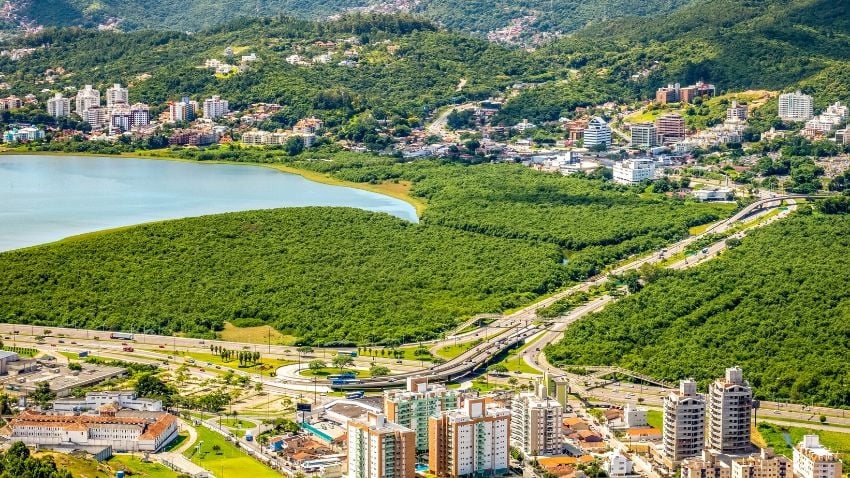
Expats who choose to live in Florianópolis, Santa Catarina, can enjoy a high quality of life in one of the cities full of natural beauty in Brazil
The path to a more informed view of Brazil’s safety lies in exercising a common-sense approach. Embracing the local culture, customs, and norms goes a long way in ensuring a secure expat experience. While it’s necessary to be cautious and aware of your surroundings, these safety practices are applicable no matter where you go.
To navigate Brazil confidently, it's essential to concentrate discussions about raw violence within the context of favelas – The ghettos or slums. Just as in any major city worldwide, crimes occur in urban areas. However, popular tourist destinations typically benefit from heightened policing, resulting in safer environments. Basic precautions, such as safeguarding purses and wallets and remaining vigilant on public transportation, are universally wise practices that apply here as well.
Another key factor to help you on your journey is resorting to reliable sources of information. Before embarking on your journey to Brazil, take some time to research specific regions and neighbourhoods. Also, seek advice from expats who have already established themselves in Brazil to get valuable insights.
When choosing accommodations, expats can opt for reputable hotels that prioritize safety and security. Many establishments in popular expat destinations are well-equipped to cater to the needs of international residents, providing a comfortable and secure living environment.
Many tourist-friendly destinations benefit from heightened security, creating Brazil's safe travel zones. Researching specific regions and seeking advice from expats can provide valuable insights. Connections with locals and other expats enrich experiences and help navigate concerns about how safe Brazil is.
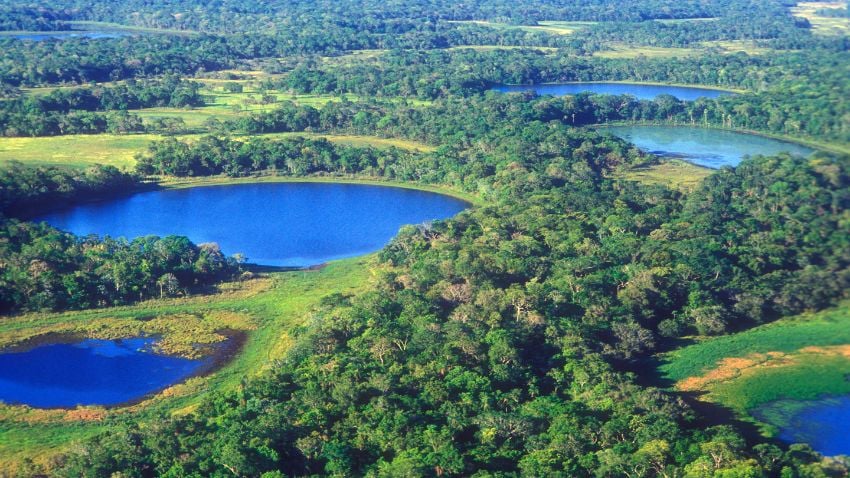
The Brazilian Pantanal is located between two states that offer a high quality of life, perfect for expats who enjoy eco-tourism
Contrary to popular belief, the vast majority of expats live safely in Brazil. Thriving communities of foreign nationals have established themselves in the country, working, raising families and enjoying their lives without a problem. Their experiences demonstrate that with vigilance, preparation and common sense, Brazil can be a welcoming and secure place to call home.
Brazil, as a part of South America, offers a unique blend of urban and rural living. Smaller towns often boast a strong sense of community and may be perceived as safer by expatriates. Understanding the local dynamics and engaging with the community can enhance the feeling of safety in these areas.
Expats can comfortably reside in numerous tourist-friendly destinations known for their safety records and attracting expats seeking a higher quality of life. Let’s see some of them:
Florianopolis is a safe and popular destination for expats and visitors alike, thanks to its beautiful beaches and low crime rates. The city is located in the State of Santa Catarina and offers a high quality of life, including excellent infrastructure, healthcare and education. Common outdoor activities are surfing, hiking, and biking.
Pantanal is perfect for expats looking for eco-tourism, thanks to its jaw-dropping wetlands and nature reserves. The Pantanal is one of the smallest existing biomes in Brazil. It is located in the Midwest region, in the states of Mato Grosso (in the south of the state) and Mato Grosso do Sul (in the northwest of the state), in addition to being found in Paraguay and Bolivia.
It is an extremely rich biome when it comes to Brazilian fauna, as it is home to most of the animals that exist in Brazil. Its environmental preservation is high, being considered the most preserved biome in the country according to government agencies, such as the Brazilian Institute of Geography and Statistics.
A perennial favourite among tourists, Fortaleza basks in its warm climate and thriving tourist industry that has significantly boosted real estate demand within and beyond the city. This Ceará gem beckons with its inviting ambiance, where sandy shores and a well-developed tourism sector harmonize to create a dynamic and sought-after destination.
Related content: The Top 6 Destinations To Visit in Brazil
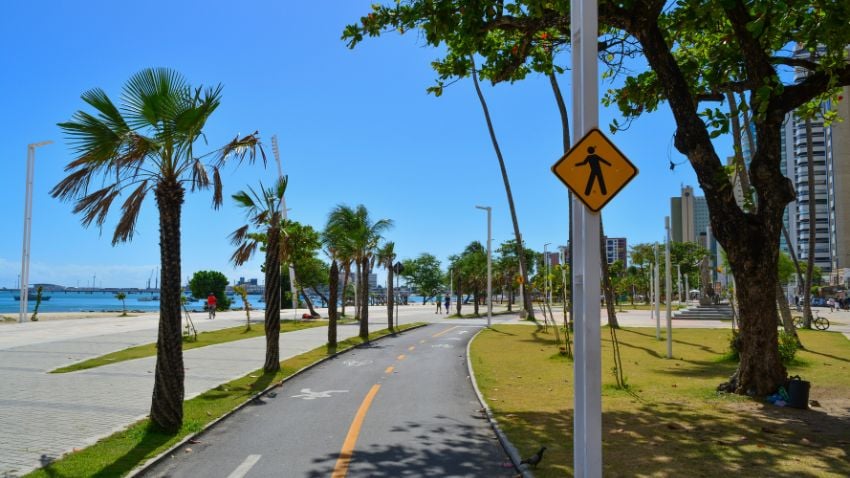
Fortaleza is a coastal city in Ceará that not only offers beautiful beaches, but also opportunities to invest in Real Estate.
Now that we’ve debunked the myths, it’s important to keep in mind some tips to help you navigate Brazil confidently.
To prevent theft, keeping your personal belongings secure in public places such as cafes or beaches is a must. It’s recommended to use a backpack or a cross-body bag and avoid leaving personal belongings unattended.
Stay on well-lit and populated main streets, especially at night. It’s better not to walk alone in secluded areas or take shortcuts through alleys, parks or favelas.
The hardest crimes in Brazil do not tend to happen to expats or visitors but rather to locals. Gang-related activities and clashes between gangs and the police pose a significant threat to anyone’s safety, especially to those involved in the conflict. These incidents tend to happen in specific areas of the country, such as the favelas.
The poor living conditions lead to high crime rates, including drug trafficking, gang wars and police clashes. While some favelas have become safer in recent years, it’s still recommended to avoid these areas altogether. Don’t be at the wrong place and the wrong time. As long as you avoid these zones, you can ensure your personal safety.
The weather in Brazil is not sunny all the time. Plus, like in other popular expat countries such as Colombia, it has its rainy season between May and the end of July. Extreme weather conditions such as heavy rain or strong winds can affect transportation and infrastructure, posing safety risks.
If you want to go to the beach, look for safe beaches without shark attack warnings and preferably without strong waves or rip currents. Pay attention to the tide table to know when the tide is high or shallow and give preference to natural pools.
Beaches, where there are many corals, tend to have clearer and warmer water, in addition to being safer for swimming, especially in the Northeast of Brazil, as in the natural pools of Porto De Galinhas and Maragogi.
Learning the local language will facilitate communication and integration everywhere you go. Knowing Portuguese is essential for navigating day-to-day life more smoothly. Simple phrases to order food and ask for directions can help avoid misunderstandings or conflicts.
Related content: What You Need To Know To Get A Brazil Visa
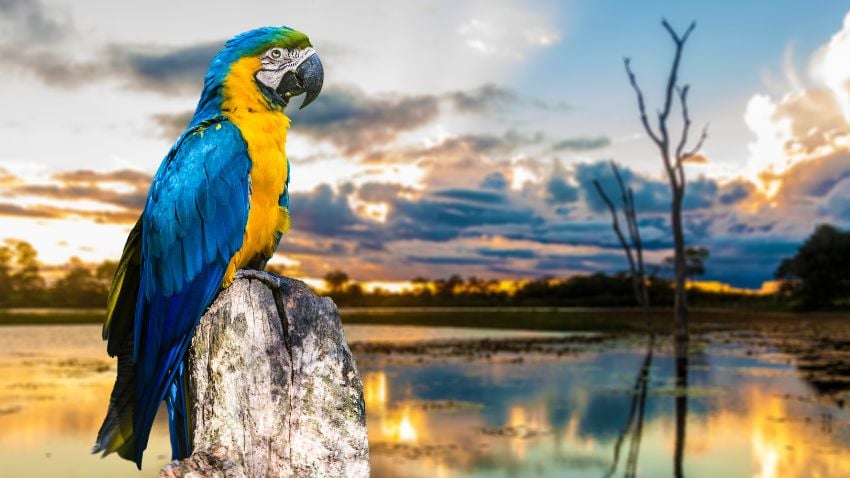
Colorful Macaw in Pantanal, one of the birds that make up the Brazilian fauna
In conclusion, Brazil’s potential often transcends the shadow of misconceptions surrounding its safety. Beyond the media-driven stereotypes, this country is brimming with culture, warmth and opportunities waiting to be embraced.
It's crucial to approach Brazil with an open mind, acknowledging that safety concerns are not exclusive to this nation alone. Embracing the essence of common sense, engaging with local customs, and forging connections within communities can pave the way for a secure and enriching expat journey. From the enchanting beaches of Florianopolis to the dynamic charm of Fortaleza, Brazil welcomes you with open arms.
With preparation, vigilance, and the spirit of adventure, Brazil emerges as a country not just to visit but to call home. Untold Brazil, a tapestry of vibrant life, awaits those who dare to explore beyond the misconceptions and embark on a remarkable expat experience.
If you want the best intel from the expat world, including profitable offshore opportunities, little-known tax-saving strategies, and hard-won insights on immigration, passports, and Plan-B residencies, all delivered to your inbox every single week, then join our daily correspondence, EMS Pulse®. Currently enjoyed by over 84,000 expats and expat-hopefuls worldwide. Fill in the form below to join our newsletter free:

Written by Mikkel Thorup
Mikkel Thorup is the world’s most sought-after expat consultant. He focuses on helping high-net-worth private clients to legally mitigate tax liabilities, obtain a second residency and citizenship, and assemble a portfolio of foreign investments including international real estate, timber plantations, agricultural land and other hard-money tangible assets. Mikkel is the Founder and CEO at Expat Money®, a private consulting firm started in 2017. He hosts the popular weekly podcast, the Expat Money Show, and wrote the definitive #1-Best Selling book Expat Secrets - How To Pay Zero Taxes, Live Overseas And Make Giant Piles Of Money, and his second book: Expats Guide On Moving To Mexico.

Mexico remains one of Latin America’s most compelling destinations, especially for North Americans. More than a million expats call it home, and tens...

South Korea is far more than K-pop and K-dramas. It is a country known for outstanding food, from bustling street markets to high-end dining, as well...
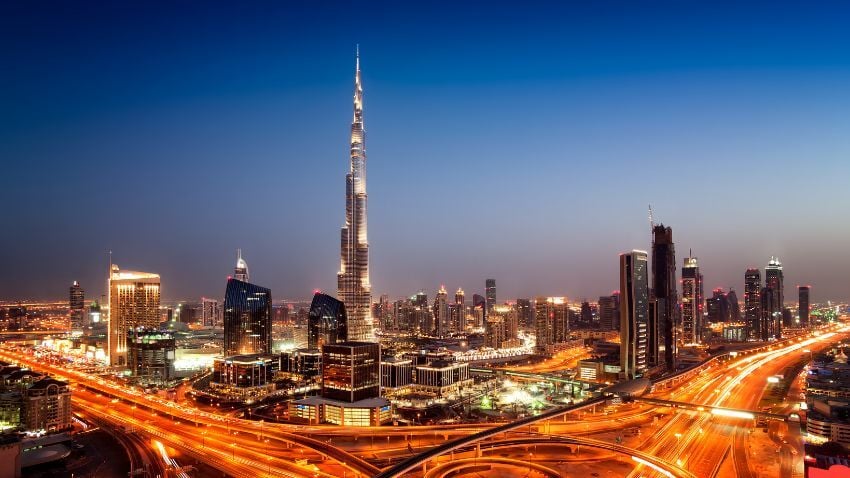
Asia is one of the most fascinating regions in the world for travel, offering an extraordinary mix of cultures, histories, and landscapes. From...